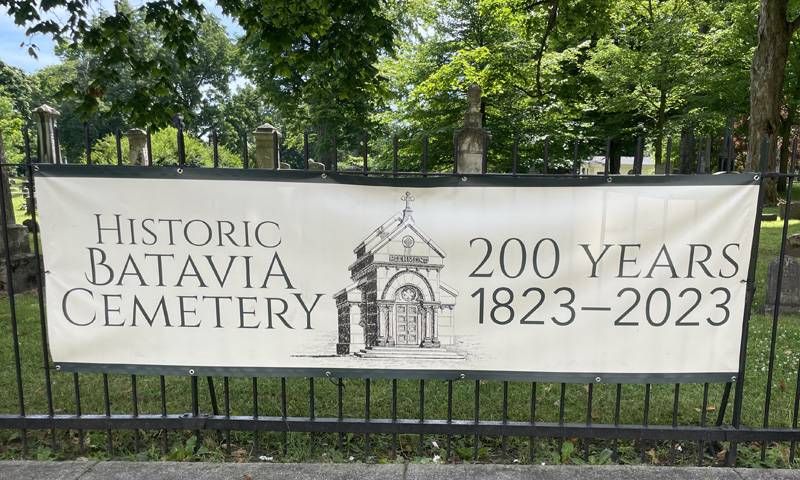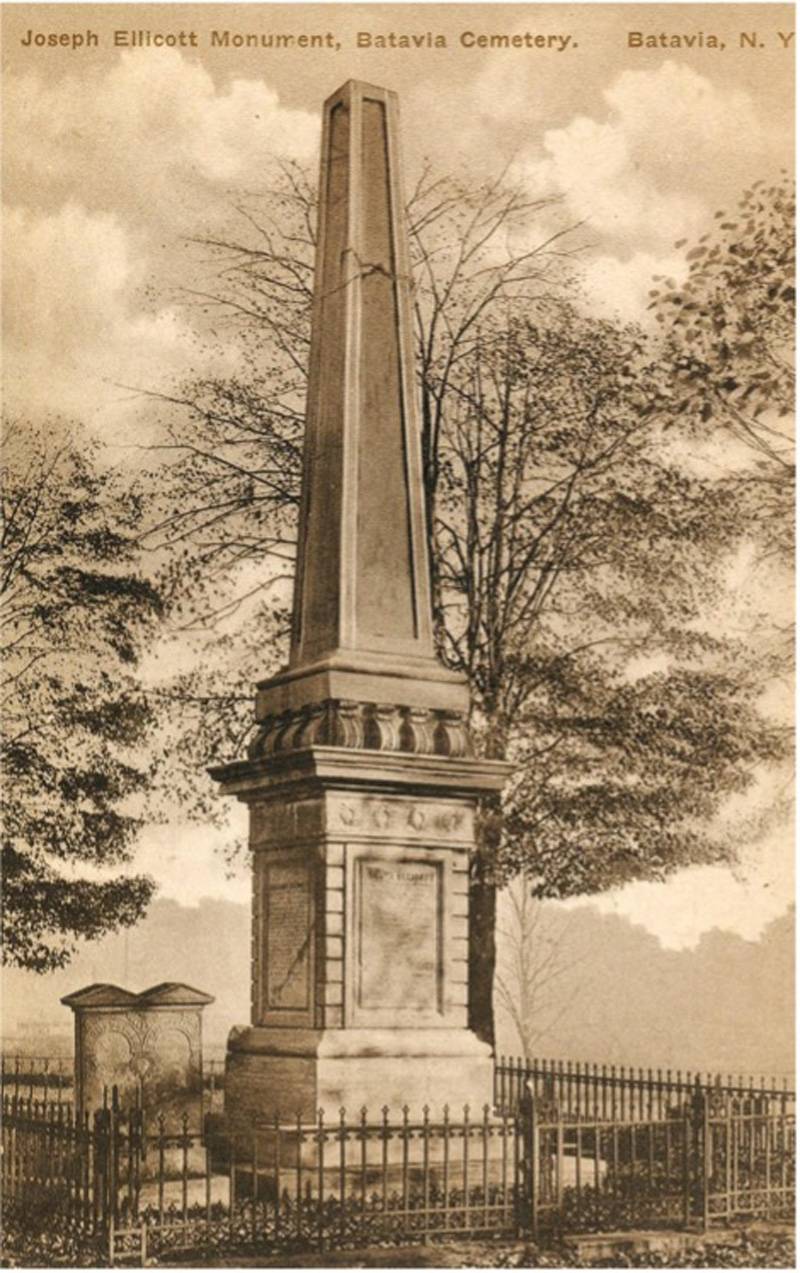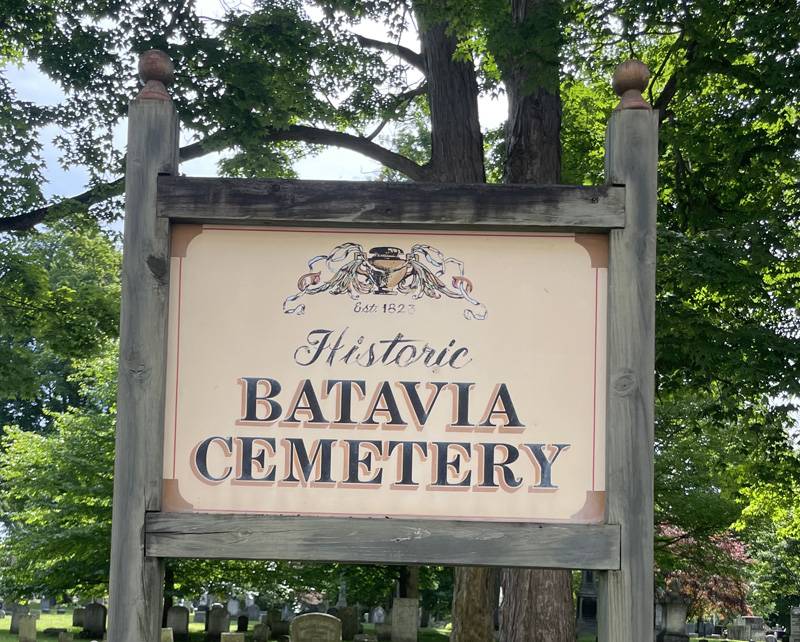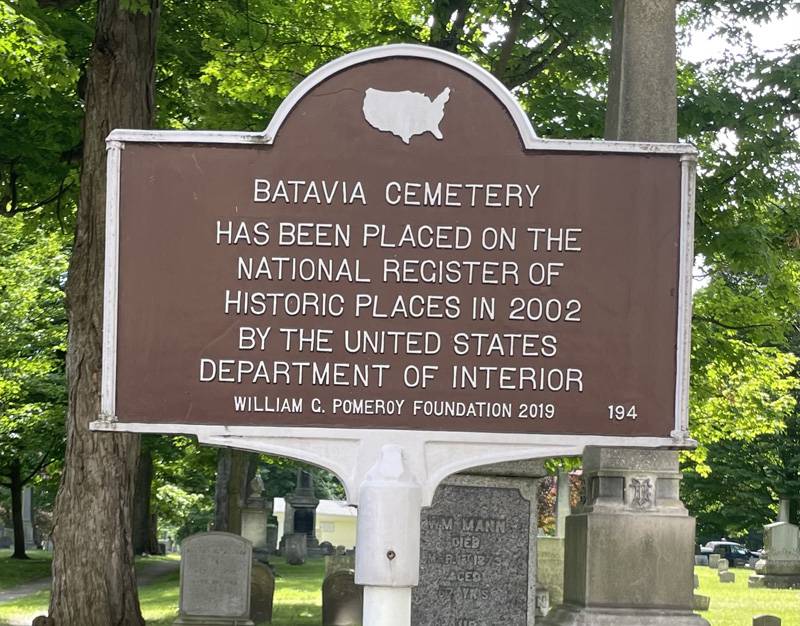
There are many hidden treasures in Genesee County. One beautiful gem is the Historic Batavia Cemetery.
If you travel slowly down Harvester Avenue, look at the first cemetery on the left going south. A wrought iron fence and trees surround the cemetery. It is the home of our early leaders and pioneers from this area.
I would bring my fourth-grade students to this living history book every year to learn about their local history. We would visit the various stones, and I would explain their relevance to Batavia’s early history. I could not wait to show them Joseph Ellicott’s Monument. As my students would sit on the grass looking at The Ellicott Plot, I would have them turn around and look toward Harvester Avenue. They would see nothing in front of this monument but a beautiful lane lined with trees over 100 years old. I would then tell them about this brilliant man and his family.
If you wanted to buy land and settle in this region, you purchased your land from Joseph Ellicott, founder of Batavia. He was the first surveyor and local agent of the Holland Land Company. Joseph was entitled by his contract to select a piece of land for his residence and land office. He claimed the land on West Main Street, opposite Walnut Street. His land occupied the areas we know as Thomas Avenue, Porter Avenue, and Washington Avenue.
In 1802, the east wing of Ellicott’s mansion was built as his residence. In 1815, the Holland Land Office was completed across the street from his mansion, which remains the Holland Land Office Museum today.
In 1818, the three-story structure of his home was finished. It included a large main building with two wings and additions to the rear of his house. Behind his home were a pasture, barn, and a large flower garden. If you were fortunate enough to be a guest in Joseph’s mansion, you would have dinner on blue and gold English china. If you were overnight guests, a bed warmer warmed your sheets. A bed warmer consisted of a metal container, usually fitted with a handle shaped like a modern frying pan, with a solid or finely perforated lid. The pan would be filled with hot coals and placed under the covers of a bed to warm it up. A servant would then run the bed warmer between the sheets to warm them.
Please visit the Holland Land Office Museum and enter the room where Joseph sold land to our early settlers. The museum has Ellicott’s China, a bed warmer, and a cabinet donated by the Ellicott-Evans family. Also, stop by the Historic Batavia Cemetery and find Joseph’s monument and other famous Batavians resting on Harvester Avenue.



